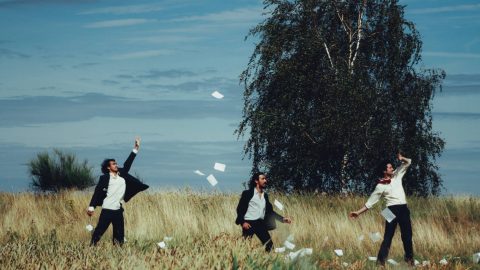
Ashanti has discussed plans to re-record her 2002 self-titled debut album, saying she made the move “so I can collect my coins”.
The singer has become the latest in a growing number of high-profile artists to recreate their older work in order to regain control of their master recordings.
After announcing the planned move earlier this year, Ashanti appeared on The Breakfast Club this week to detail why she is re-recording her first work.
“So as an artist, when you are in the game for a certain amount of time, you pay your dues and things are supposed to come back to you,” she responded when asked about the plans.
“You have a legal team that does what they’re supposed to do so that you can function and own [your work]. So with my album being 20 years old in April (2022), obviously it makes sense for me to go in and re-record so that I can collect my coins.”
Discussing what may change on the re-recorded version, she teased: “It’s not necessarily changing the vibe, but kinda just injecting something new, sonically, into it. And maybe I might put some (new) features in there.”
The most high-profile re-recording project currently being undertaken is from Taylor Swift, who is currently in the process of re-recording her first six albums in an attempt to regain control of her master recordings after masters of her early records were sold off several times without her permission.
The re-recordings began with ‘Fearless (Taylor’s Version)’ earlier this year, with the second album, ‘Red (Taylor’s Version)’, coming out last month.
In the wake of the re-records, Universal Music Group, the parent label of Swift, have reportedly set out new guidelines with regards to their artists re-recording old material.
A new report from The Wall Street Journal claims that Universal have been setting up new agreements with its artists which, according to the report, “effectively double the amount of time that the contracts restrict an artist from rerecording their work.”

It continued: “Prior to Universal’s change, the industry’s standard rerecording restriction said an artist can’t rerecord until five years after the delivery of their last recording under the agreement, or two years from the end of the recording contract’s term, whichever is later.
“Universal’s new proposals increase those periods to seven and five years, respectively, and tack on another “seven year post period” to the end of the rerecording restriction during which the artist is barred from rerecording more than two songs.”
Despite the proximity with Swift’s high-profile series of re-recordings, a source with knowledge of the case tells The Wall Street Journal that the plans were set out before Swift began publicising her plan to re-record her first six albums.
The post Ashanti re-recording debut album “so I can collect my coins” appeared first on NME.







